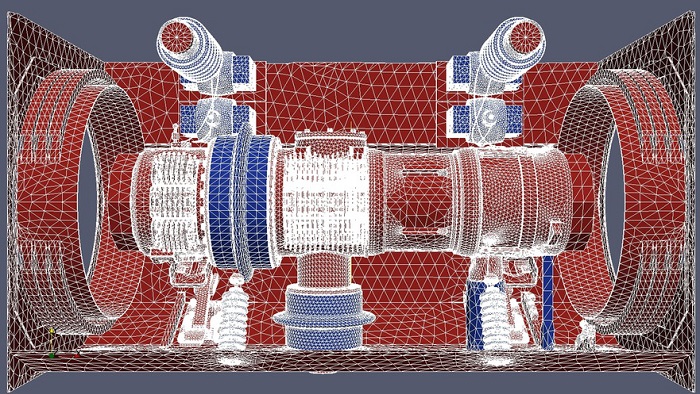National and international guest researchers
Scientists from Italy, Switzerland and Germany accepted the invitation to give guest lectures in Bayreuth in the summer semester 2023 and winter semester 2023/2024, with two lectures taking place per semester. The topics presented, broadly covered the subject of scientific computing. For example, one lecture presented a numerical method with which the shallow water equations can be simulated more simply and efficiently. This type of equation is often used to simulate flooding, for example, which is becoming increasingly important, non the least because of climate change. However, two lectures were particularly memorable for the students.
Mathematics behind superconductors
Superconductors are materials that can conduct electricity without loss. The technical possibilities here are enormous. These materials are used where very strong magnetic fields are required, such as in particle accelerators, magnetic levitation trains or magnetic resonance tomographs. For materials to reach this particular state, very low temperatures close to absolute zero, i.e. around -273°C, are generally required. In the last ten years, physicists have tried to achieve the property of "superconductivity" at higher temperatures by producing new materials. However, the manufacturing process is highly complex, as the effects of long-range interactions on the collective excitation of the condensate must be analyzed when combining different materials. In his lecture, Dr. Buchheit from Saarland University introduced the students of the Elite Graduate Program "Scientific Computing" to the mathematical modeling and simulation of these long-range interactions.
ML in the analysis of car crashes
Prof. Garcke from the University of Bonn chose a simpler topic for his guest lecture. He showed the students how machine learning (ML) can be used to analyze car crash tests or even car accidents. These techniques came into play because mathematical simulation methods are now so sophisticated that they deliver a higher amount of data than a development engineer could analyze in reasonable amount of time. Machine learning can evaluate a large amount of data in a short time and thus provide valuable information for the design.
Text: Maximilian Bauer, Elite Graduate Program "Scientific Computing"


